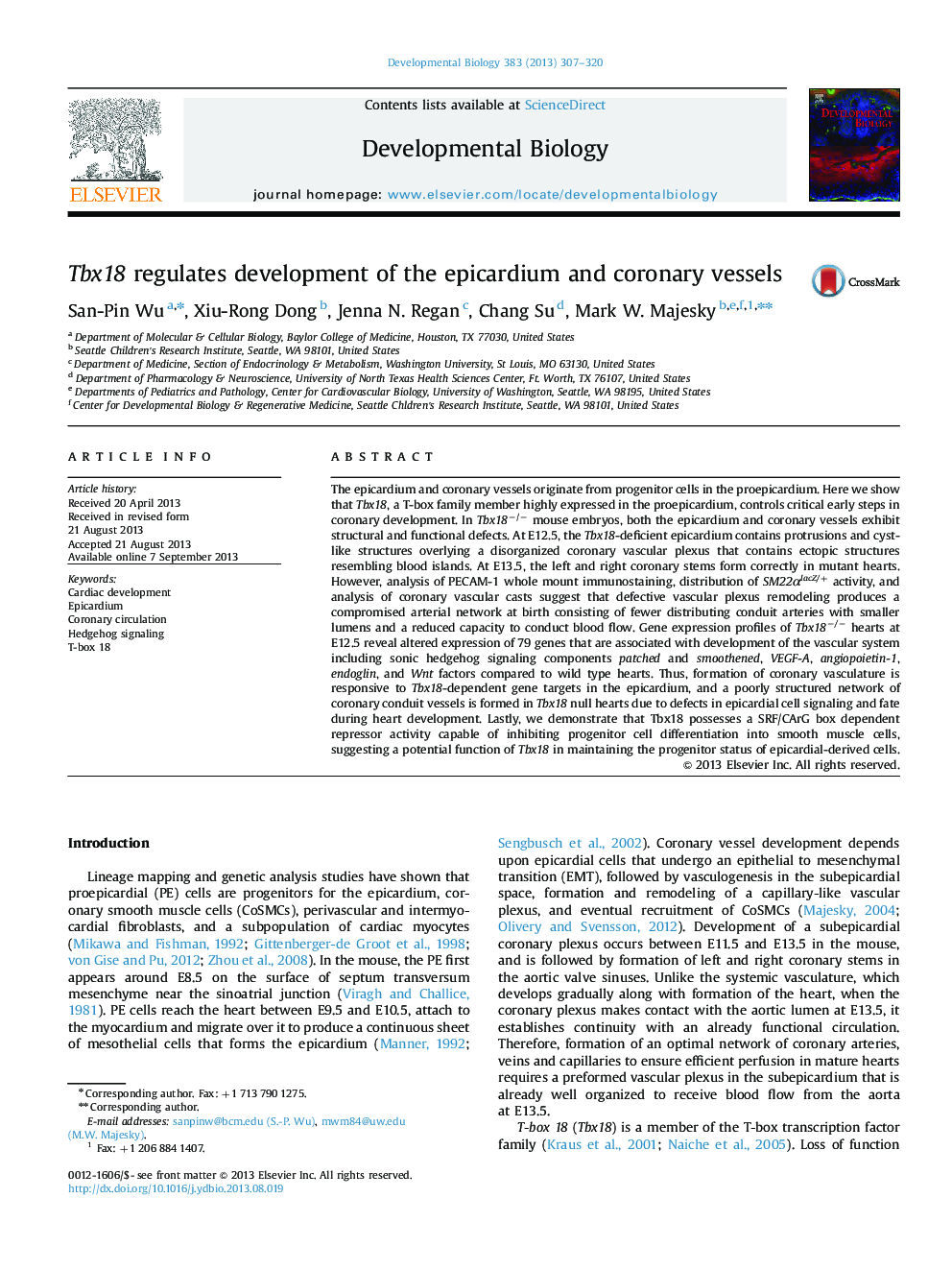| Article ID | Journal | Published Year | Pages | File Type |
|---|---|---|---|---|
| 2173045 | Developmental Biology | 2013 | 14 Pages |
•Tbx18-null mice exhibit morphological defects in epicardium and coronary vessels.•Mutant epicardial cells show impaired proliferation and increased apoptosis.•Mutant mice display defects in the vascular plexus remodeling process.•Expression of Hedgehog and VEGF signaling components are altered in mutant hearts.•Tbx18 possesses a SRF/CArG box dependent repressor activity.
The epicardium and coronary vessels originate from progenitor cells in the proepicardium. Here we show that Tbx18, a T-box family member highly expressed in the proepicardium, controls critical early steps in coronary development. In Tbx18−/− mouse embryos, both the epicardium and coronary vessels exhibit structural and functional defects. At E12.5, the Tbx18-deficient epicardium contains protrusions and cyst-like structures overlying a disorganized coronary vascular plexus that contains ectopic structures resembling blood islands. At E13.5, the left and right coronary stems form correctly in mutant hearts. However, analysis of PECAM-1 whole mount immunostaining, distribution of SM22αlacZ/+ activity, and analysis of coronary vascular casts suggest that defective vascular plexus remodeling produces a compromised arterial network at birth consisting of fewer distributing conduit arteries with smaller lumens and a reduced capacity to conduct blood flow. Gene expression profiles of Tbx18−/− hearts at E12.5 reveal altered expression of 79 genes that are associated with development of the vascular system including sonic hedgehog signaling components patched and smoothened, VEGF-A, angiopoietin-1, endoglin, and Wnt factors compared to wild type hearts. Thus, formation of coronary vasculature is responsive to Tbx18-dependent gene targets in the epicardium, and a poorly structured network of coronary conduit vessels is formed in Tbx18 null hearts due to defects in epicardial cell signaling and fate during heart development. Lastly, we demonstrate that Tbx18 possesses a SRF/CArG box dependent repressor activity capable of inhibiting progenitor cell differentiation into smooth muscle cells, suggesting a potential function of Tbx18 in maintaining the progenitor status of epicardial-derived cells.
